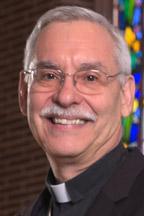
You and I are closer to some people than we are to others. We have acquaintances, friends and loved ones. We share some things with everyone and more personal things with our friends, but we reserve our most intimate moments for those who know us best and are in the best position to understand when something unexpected or troubling happens in our lives.
Jesus was closer to some of his followers than to others. He had many disciples, 12 apostles and an inner circle of three best friends: Peter, James and his beloved disciple, John.
He shared some things with all of his followers and more personal things with the apostles — for instance, the Last Supper, but he reserved his most intimate moments for his inner circle. Jesus shared with these three closest friends his most glorious moments, like his Transfiguration in today’s Gospel and his most painful moments, like the Agony in the Garden.
These three were the ones who knew Jesus the best and the price he was paying personally to do his Father's will. These three knew more than the others who Jesus was on the inside — they knew more about his courage, as well as his fears — which will make Peter and James' abandonment of Jesus on Good Friday all the more painful.
But his very best friend, John, did stay with him all the way to the end. And notice, John was the only apostle who ended up dying later of natural causes. Why? Because he had already experienced a type of martyrdom — spiritual martyrdom — by risking his life to stay with Jesus at the foot of his cross. All the others had fled precisely out of fear that they might be arrested too, and crucified too as one of Jesus' fellow insurgents, which is what the Romans thought Jesus and his followers were.
Since John stayed with Jesus on Good Friday, he had already embraced the cross, was already willing, at least implicitly, to accept the possibility of his own crucifixion if that was what faithfulness to Jesus required. As for Peter and James and the others who had fled, faithfulness required of them that they ended up shedding their blood as martyrs for Christ later, finally embracing, courageously, the cross that they had earlier tried to flee.
That is the basic message of Jesus' Transfiguration for us: the road to glory passes through Calvary. This is true for Jesus and his disciples, and now also us and, above all, those of us who are engaged in ministry of any sort. If you are not willing to bear a cross, you’re not yet following Jesus.
I tell my seminarians that if they go to the seminary seeking their own glory, to win the esteem of others and the power that comes with the sacrament of orders, they are on the wrong path because this is not the path of Jesus.
They will not be able to be faithful to their promise of celibacy without embracing a cross. Neither will they be able to be faithful to their promise of obedience or protecting the flock entrusted to their care without embracing a cross. And the same is true for every single one of you: if you are not bearing a cross, making sacrifices in order to live for something bigger than yourself, you are not following Jesus because his path to glory leads through Calvary.
If you embrace your cross with love, one day you will receive a crown, but otherwise, you will not.
Today Peter, James and John see Jesus transfigured with glory — his face shining like the sun and his clothes as white as light. Later they will see him transfigured with pain — sweating blood during his Agony in the Garden, whipped and crowned with thorns on Good Friday, his body broken but not his spirit, which remained courageously resolute to do his Father's will completely. And then, finally, on Easter Sunday, they will see him transfigured in glory once again as on the day of his Transfiguration, but now bearing in his resurrected body the wounds by which you and I were saved.
And it is only then that it will all begin to make sense: Jesus' glorious identity as the Son of God who will save us by means of a very un-glorious death, which is something they're not quite ready to understand yet and why, as they were coming down from the mountain of his Transfiguration, Jesus charged them: "Do not tell the vision to anyone until the Son of Man has risen from the dead."
Now that he has risen, the secret is out, and now the time has come to proclaim this Good News of salvation to everyone. The time to keep quiet has long since ended.
Bishop Anthony B. Taylor delivered this homily Feb. 25.
Please read our Comments Policy before posting.
Article comments powered by Disqus Don’t let misconceptions cause faith to waver
Don’t let misconceptions cause faith to waver
 Seniors, whatever storms may come, Jesus will be there
Seniors, whatever storms may come, Jesus will be there
 Studio 3:16 offers new approach to teaching religion
Studio 3:16 offers new approach to teaching religion
 After three decades, NLR principal plans to retire
After three decades, NLR principal plans to retire
 CHS athlete overcomes odds to reach collegiate goal
CHS athlete overcomes odds to reach collegiate goal
 St. Joseph a model of solidarity with immigrants
St. Joseph a model of solidarity with immigrants
 Two gifts after Jesus’ death: Virgin Mary and Eucharist
Two gifts after Jesus’ death: Virgin Mary and Eucharist
 Why we have an altar, and not just a communion table
Why we have an altar, and not just a communion table
 Pope: Wars should be resolved through nonviolence
Pope: Wars should be resolved through nonviolence
 Living relationship with Jesus Christ in the Eucharist
Living relationship with Jesus Christ in the Eucharist